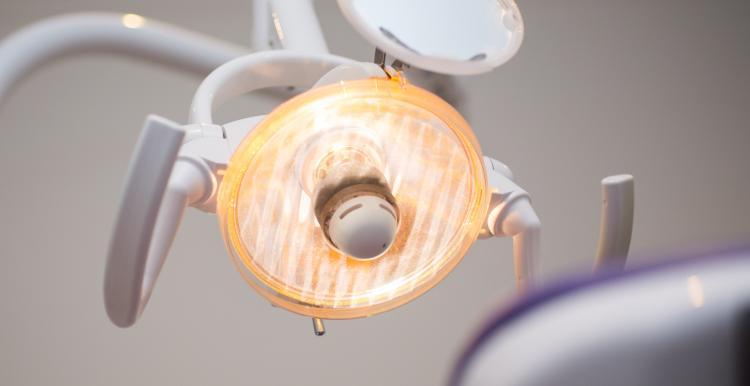Healthwatch England Research: What people want from NHS dentistry

Years of campaigning by Healthwatch and others have exposed widespread problems for people across England who cannot get care from an NHS dentist.
Last year, MPs concluded the NHS dental system was broken and Health and Social Care Secretary Wes Streeting promised a new Dental Rescue Plan after Labour came to power in July.
To inform future government action on dentistry, we've carried out what we believe to be the first polling of its kind in England. It tested the public's understanding of how NHS dentistry works and what people think about various future options that policymakers could consider.
Key findings
- Most people believe NHS dentists work in the same way as GPs.
- When they're told this isn't the case, most say they would prefer a GP-style system in the future.
Do you have a 'right' to register with an NHS dentist?
In September, we asked 1,791 adults whether they thought the following statement was true or false: 'I have the right to register with an NHS dentist and be taken on as a permanent patient in the same way as I do with an NHS GP.'
- More than two-thirds (68%) said they believed it was true;
- 16% said it was false;
- and 16% answered 'don't know'.
The statement is false – people do not have a right to be registered with a dentist as a permanent patient.
This has been the case since 2006 when a new NHS dental contract was introduced to pay dentists only per unit of dental activity rather than getting paid per person registered on a list of permanent patients (as GPs do). The contract means the dentist has no long-term obligation to see patients, only during an active course of treatment or in the one-year guarantee period for restorations of permanent fillings, crowns, inlays, root fillings or porcelain veneers.
In practice, many dentists want to see patients regularly, build trust, and help them develop good oral healthcare over their lifetimes. Dentists, therefore, hold a business database of these patients to invite them in for future check-ups. They may even use the same terms GPs use, inviting patients to 'register' with them.
Have you ever been told you were 'de-registered'?
Most dentists see a mix of private and NHS patients. NHS patients tell us they value the care they receive from individual dentists, with 82% of those who were seen in the past two years saying the dentist put them at ease and 85% feeling the dentist treated them with respect.
However, the unpopularity of the NHS dental contract – which dentists feel doesn't cover the actual cost of the work involved, means more are choosing to stop seeing NHS patients altogether. They aren't required to give patients who aren't currently in active treatment any warning about this change.
We heard of instances where patients at a practice who had given up NHS work went to make a new appointment. Due to their misconceptions, they were shocked that the dentist had 'deregistered' them. As a result, they lost the continuity of care they had valued so much from that provider and faced the inconvenience of looking for an NHS dentist or the dilemma of going to a private dentist.
No appointment guarantees at your regular NHS dentist.
Even dental practices that remain committed to providing NHS work can't guarantee that patients who've had an appointment with them before will get one. We heard from people who had been removed as regular NHS patients from dental practices because they hadn't attended a check-up in the last two years, even if they weren't aware this was a condition of staying on the books.
One letter sent by a practice to a person who was taken off their list states: "Under the NHS contract, as patients do not hold any registration with a dental practice, the practice has no obligation to tell a patient when they can no longer offer them treatment. We also have no obligation to recall patients for appointments, although we do sometimes offer this recall service as a courtesy service."
There is no ambiguity for GP patients—they can only be deregistered if they choose to sign up for another surgery if their relationship with the surgery breaks down or if they move out of the practice's catchment area.
People want GP-style NHS dentistry.
Our poll also provided some context on how NHS dentistry works and on the government's plans to reform the NHS dental contract (though no proposals have been set yet).
It asked respondents to choose what kind of dental system they preferred.
Of the four options, two were hypothetical, to test support for having a dental system operating like NHS GP services (being able to register permanently with a local GP or out of the area where you live but near your work); the other two reflected the status quo—the current NHS system or going private.
Seven out of 10 respondents want some people registration system:
- Over half, 55%, want the ability to permanently register with a local NHS dentist as they do with a GP surgery.
- One-sixth, 16%, want to be able to register with an NHS dentist in the location that suits them best (e.g. near work).
- A very small number, three per cent, said they use or would prefer to use a private dentist in the future.
- While 27% said they 'want the flexibility to seek an appointment at any NHS dentist each time, including those outside their area'.
The last statement describes the current system of NHS dentistry.
What is the government considering?
Health and social care secretary Wes Streeting met the British Dental Association on his first day in post in July to start talking about long-term reform of NHS dentistry. He also commissioned an independent review into the state of the NHS, which called for "urgent action" to develop a new contract "If dentistry is to continue as a core NHS service".
The government has also promised a Dental Rescue Plan to deliver, in the short term, 700k extra urgent NHS dental appointments for patients, but it hasn't set any details or terms for long-term reform.
The previous government tried to improve dental access by offering dentists a new incentive payment from March 2024 to encourage them to see people who hadn't had an NHS appointment in the past two years. No official figures have been published to show if this has had any impact.
Our polls, which we carried out in March and September, showed no increase in the percentage of adults who'd been able to see an NHS dentist during that time. This suggests that changes introduced in March this year to try and encourage dentists to see more new NHS patients have not increased access.
What kind of system do dentists want?
The British Dental Association (BDA) is running a campaign for the government to fund NHS dentistry properly 'so everyone who needs care can secure it'. The BDA suggests this could involve a "blended, capitation-based contract," introducing a payment-per-patient system alongside set fees for specific treatments.
Reforming the NHS system for child patients should be a priority, the BDA believes, before considering a capitation system for continuing care adult patients, with an activity element for those patients with very high needs.'
What are we calling for?
As policymakers seek solutions for long-term dental reform, we urge their plans to be based on the principle of giving patients a permanent link to a practice throughout their lives. We also urge them to learn any lessons from initiatives that have been tried to increase dental appointments in the short-term, such as the new patient payment that came in on 1 March.
In the meantime, the NHS and dental practices must improve public awareness of how patient 'registration' works and any obligations on attendance to stay on a regular list. This could help reduce conflicts between patients and practices if they are 'removed' as NHS dental patients.
Need for dental reform
We're calling on the government to fundamentally reform NHS dentistry and give everyone a GP-style right to be permanently registered with a dental practice to receive both preventative and urgent care throughout their lifetime.


